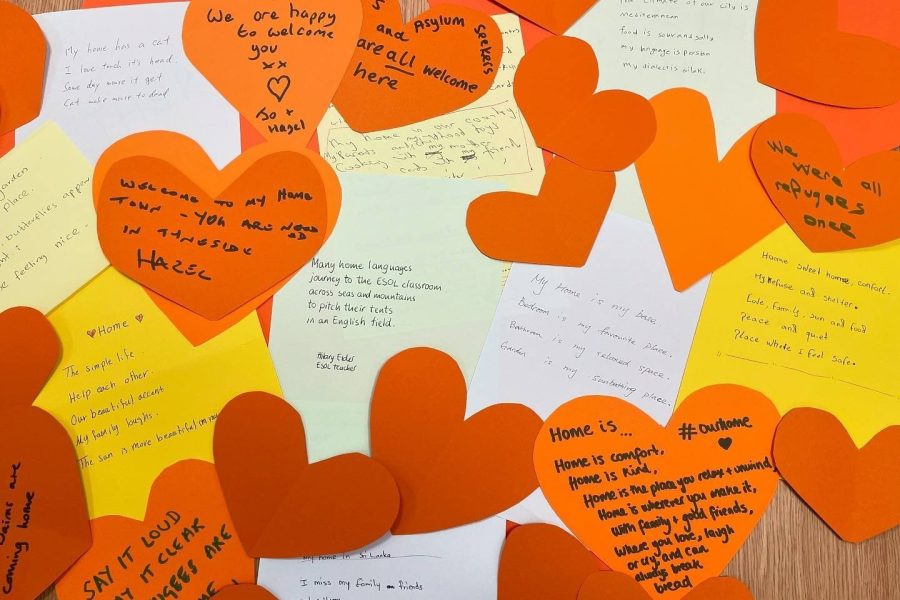I teach English to a class of adult students from all over the world at Action Foundation, a Newcastle based charity that supports refugees and asylum seekers. Not only is it a joy (my students and colleagues are wonderful) but it also feeds my own writing work. If you are curious about languages and culture, connection, belonging and what it is to be human, there are few more fascinating places to be than an ESOL classroom.
Last week was #RefugeeWeek. Refugee Week is the world’s largest arts & culture festival celebrating the contributions, creativity and resilience of refugees and people seeking sanctuary, and this year the organisers invited people to reflect on the theme of #OurHome, and especially to write poems of exactly 20 words and share them on social media.
My class work hard at their English, and they also love to try new things, so last week we turned our lesson into a poetry workshop. Poetry workshops can be challenging for anyone who … thinks they are not creative … thinks poetry is posh, or remote, or only for the highly educated … is not confident about playing with language. So this was a big ask. The students, unsurprisingly, were up for it.

After some warming up and creating word-hoards, the first poem we made was a class poem. Incidentally (or perhaps not so incidentally) the word poem comes from the Greek word meaning to make. It can be helpful to think that you are making a poem, rather than writing it. We used an exercise given to us by the poet Michael Rosen, splitting the class in half. Each group was given 90 seconds to come up with a line on the theme of home, exploring each of our senses in turn. They worked alongside each other and then shared their lines. The group making the first line could use as many words as they wanted in their line, as long as it was at least 5. The second group had a maximum of 2 words for their line. Here is our poem:

Isn’t it remarkable the conversation that the paired lines have? Especially when you consider each group didn’t know what the other group was making. Thank You, Michael Rosen!
Then came the real maths challenge. Could we write poems of exactly 20 words? Of course we could (with one or two exceptions)! Some students wrote in their home language and then translated their poems, others wrote directly in English. When it was time to share, papers flapped in front of me, everyone keen to read their poem – even the shy students! We were all really proud and satisfied with our work. We all felt that we had shared something of what home meant to each of us, and had come to understand each other better. This was a powerful morning of language, made possible by poetry.








Michael Rosen, who doesn’t only write poetry but writes about it and its use in classroom settings, makes big claims for the power of poetry to enable people to gain ownership of language through hearing, writing and sharing poetry. For him, far from creating barriers that prevent people from accessing language, poetry creates bridges between culture and language, enables communication, community and shared understanding. In our ESOL classroom last week, we proved him right! Huge thank yous and pats on the back to Michael, the staff and volunteers at Action Language and the amazing students.
